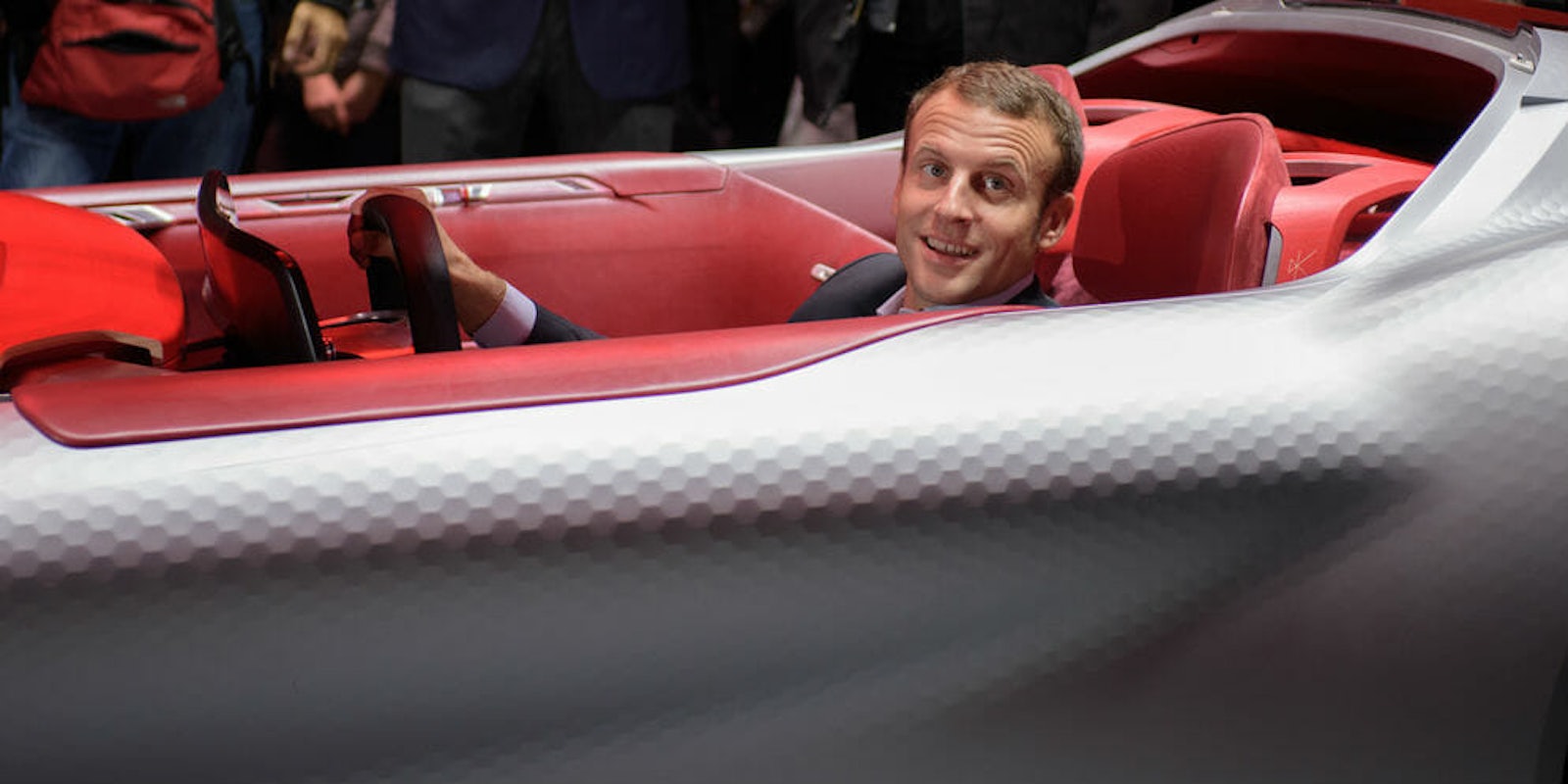France is taking the movement against fossil fuels to the next level, vowing to ban the sale of gas and diesel cars by 2040.
Nicolas Hulot, the country’s new environmental minister, announced today a new goal to ban “any new project” that uses gas or coal. The country wants to become carbon neutral, or have a zero-net carbon footprint, by 2050. It will start by phasing out the use of gas-powered cars and replacing them with electric vehicles. France will provide financial assistance to lower-income households, and encourage them to turn their gas guzzlers in for something green and clean.
Hulot made it clear that the country’s goals won’t be easily achieved. He said France will need to undergo a “revolution,” but assured its automakers are up for the task. Electric vehicles currently only account for 1.2 percent of the French auto market, while hybrid vehicles make up just 3.5 percent. Hulot brought up Volvo’s recently announced goal to end the production of gas-only cars by 2019 as a reason to be hopeful.
“It’s a very difficult objective,” Hulot said. “But the solutions are there.”
The ambitious target will put pressure on French automakers like Pigeout, Renault, and Citroën. As the New York Times points out, Renault, France’s top automaker, was one of the first cars to embrace battery-powered vehicles with the Fluance back in 2011.
The country’s decision to stomp out its carbon footprint on the roads is a direct response to President Donald Trump’s decision to leave the Paris Agreement, “France has decided to become carbon neutral by 2050 following the U.S. decision,” Hulot said.
France is not the first country to set a date for the end of gas-powered vehicles. Norway wants all the cars on its roads to be electric by 2025. India, with a population more than twice that of France, wants to achieve the goal by 2030.
H/T BBC


